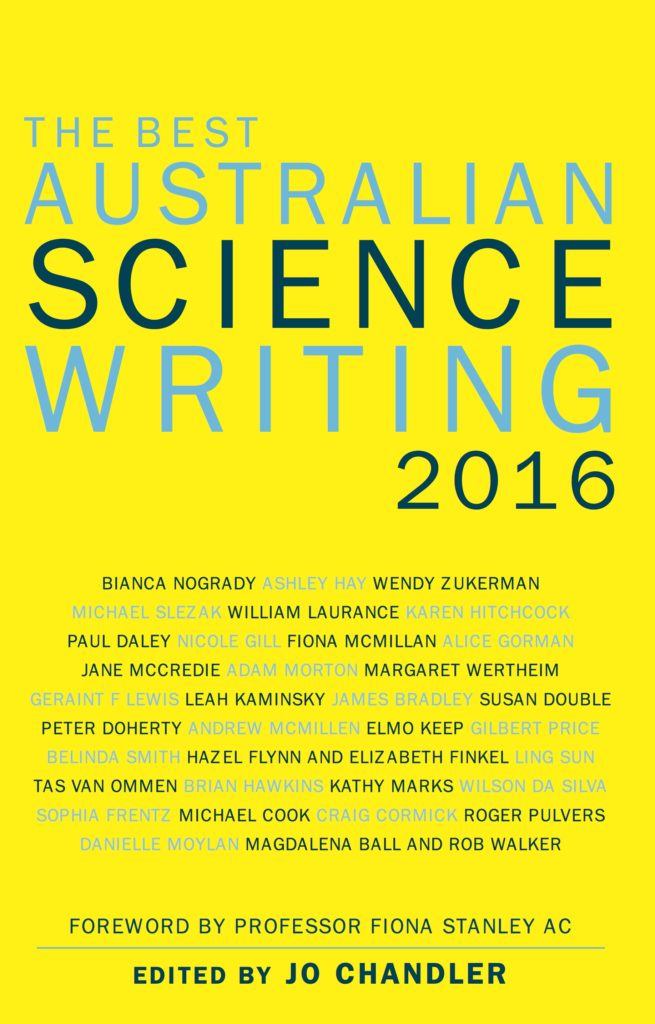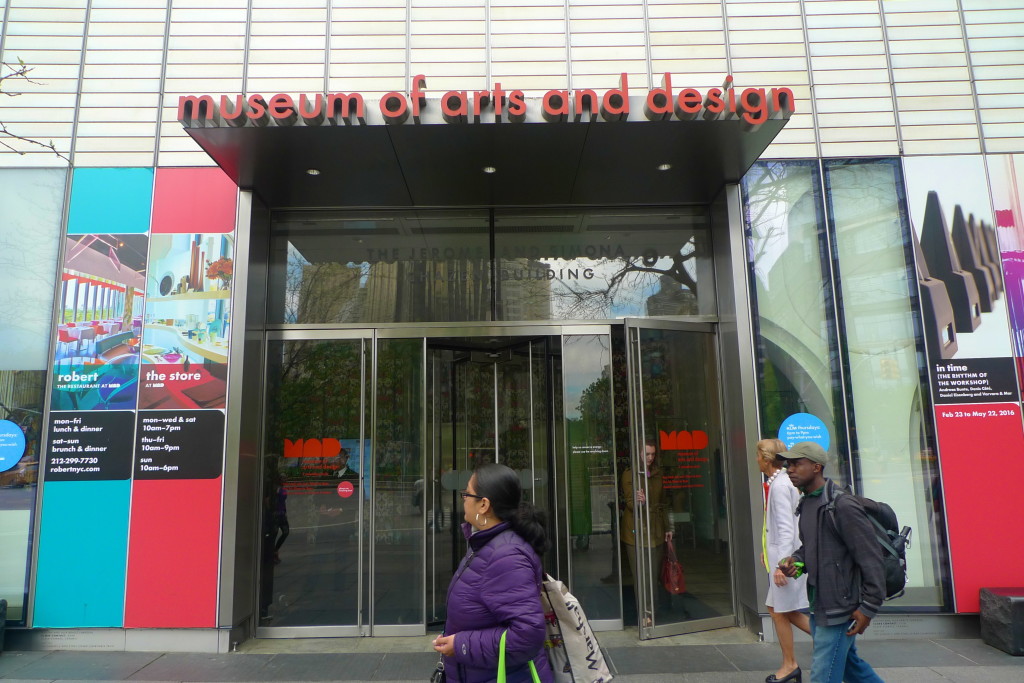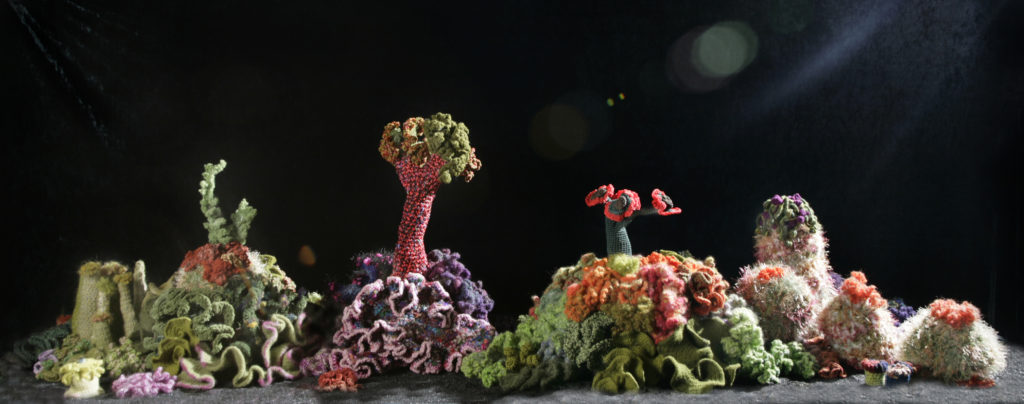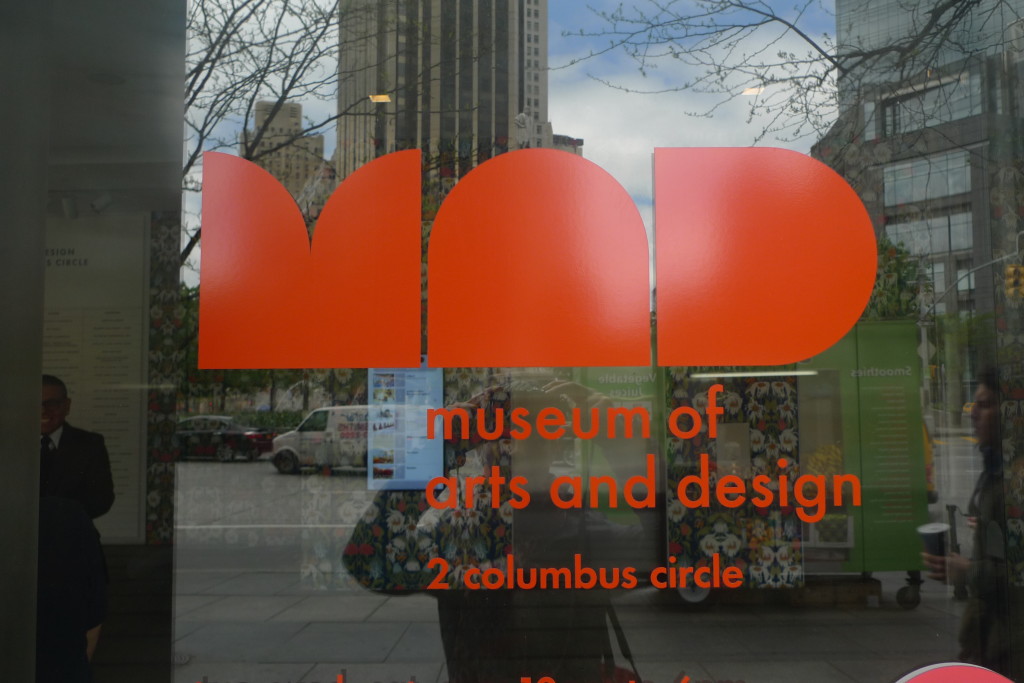In conjunction with the IFF’s exhibition Crochet Coral Reef: TOXIC SEAS at the Museum of Arts and Design in NY, please join us for a panel discussion about the acceleration of time, environmental change, and interplays between art, science and nature.

Panel: Filigrees of Form: A Stitch in Time
Museum of Arts and Design
Thursday Sept 22, 2016, 7pm
The Theater @ MAD
2 Columbus Circle, NYC, NY 10019
$10 general/ $5 members and students
Program Description
Time is being accelerated as new technologies and biological degradation bring forth rapid alterations in nature—from genetic engineering to tissue culturing, from the incessant depletion of coral reefs and their ecology to botanical farming moving indoors. How can we adjust to these environmental changes? Can we propose a new arcadia, coupled with advances in mathematical models and their projections, or are some of nature’s forms too complex to execute in that manner? Looking at biology as technology, our panel discussion will underscore the sensitivities inherent in forms of living entities and the roles these forms play in knowledge production through art and science.
Panel Moderator:
Suzanne Anker is a visual artist and theorist working at the intersection of art and the biological sciences. She works in a variety of mediums, ranging from digital sculpture and installation to large-scale photography to plants grown under LED lights. Her work has been shown both nationally and internationally, in museums and galleries including the ZKM, Karlsruhe, Germany; Walker Art Center, Minneapolis; Smithsonian Institution, Washington, DC. Ankar has hosted 20 episodes of The Bio-Blurb Show, an Internet radio program originally on WPS1 Art Radio, in collaboration with the Museum of Modern Art, New York. Chairing the School of Visual Arts’ BFA Fine Arts Department in New York City, Anker continues to interweave traditional and experimental media in her department’s new digital initiative and the SVA Bio Art Lab.
Panelists:
Margaret Wertheim is a writer, artist and curator whose work focuses on the intersection of science and the wider cultural landscape. Founder and director of the Institute For Figuring, she and her twin sister Christine Wertheim have created the Crochet Coral Reef project, which has been exhibited at the Hayward Gallery, London; Andy Warhol Museum, Pittsburg; Science Gallery, Dublin; and the Smithsonian’s National Museum of Natural History, Washington, DC. Wertheim’s work with the IFF has been shown at the Walker Art Center and is in the current MASS MoCA exhibition Explode Every Day: An Inquiry into the Phenomenon of Wonder. She has authored six books, including The Pearly Gates of Cyberspace a history of Western concepts of space, and Physics on the Fringe, about the scientific equivalent of “outsider art.”
Joseph DeGiorgis graduated with a Bachelor’s in Oceanography and Marine Ecology from the Florida Institute of Technology and worked as a scuba diver for the Marine Biological Laboratory (MBL) in Woods Hole, Massachusetts. He spent time at the Harbor Branch Oceanographic Institute and at Harvard Medical School before obtaining a PhD in Neuroscience from Brown University. He was a Postdoctoral Fellow at the National Institutes of Health and is now a Professor of Biology at Providence College and Adjunct Faculty in the MBL Cellular Dynamics Program. DeGiorgis teaches bio imaging at the School of Visual Arts, New York.
Frank Gillette is the recipient of numerous awards, including fellowships from the Rockefeller Foundation and the Guggenheim Foundation, and grants from the New York State Council on the Arts and the National Endowment for the Arts. He was artist-in-residence at the American Academy in Rome in 1984–1985. His work has been presented in solo exhibitions at museums and galleries including Contemporary Arts Museum Houston; Corcoran Gallery of Art, Washington, DC; Howard Wise Gallery, New York; Leo Castelli Gallery, New York; and Whitney Museum of American Art, New York. In addition, Gillette’s work has been included in numerous group shows, including at Documenta 6, Kassel, Germany; Museum of Modern Art, New York; Carnegie Museum, Pittsburgh; San Francisco Museum of Modern Art; and the Venice Biennale.





